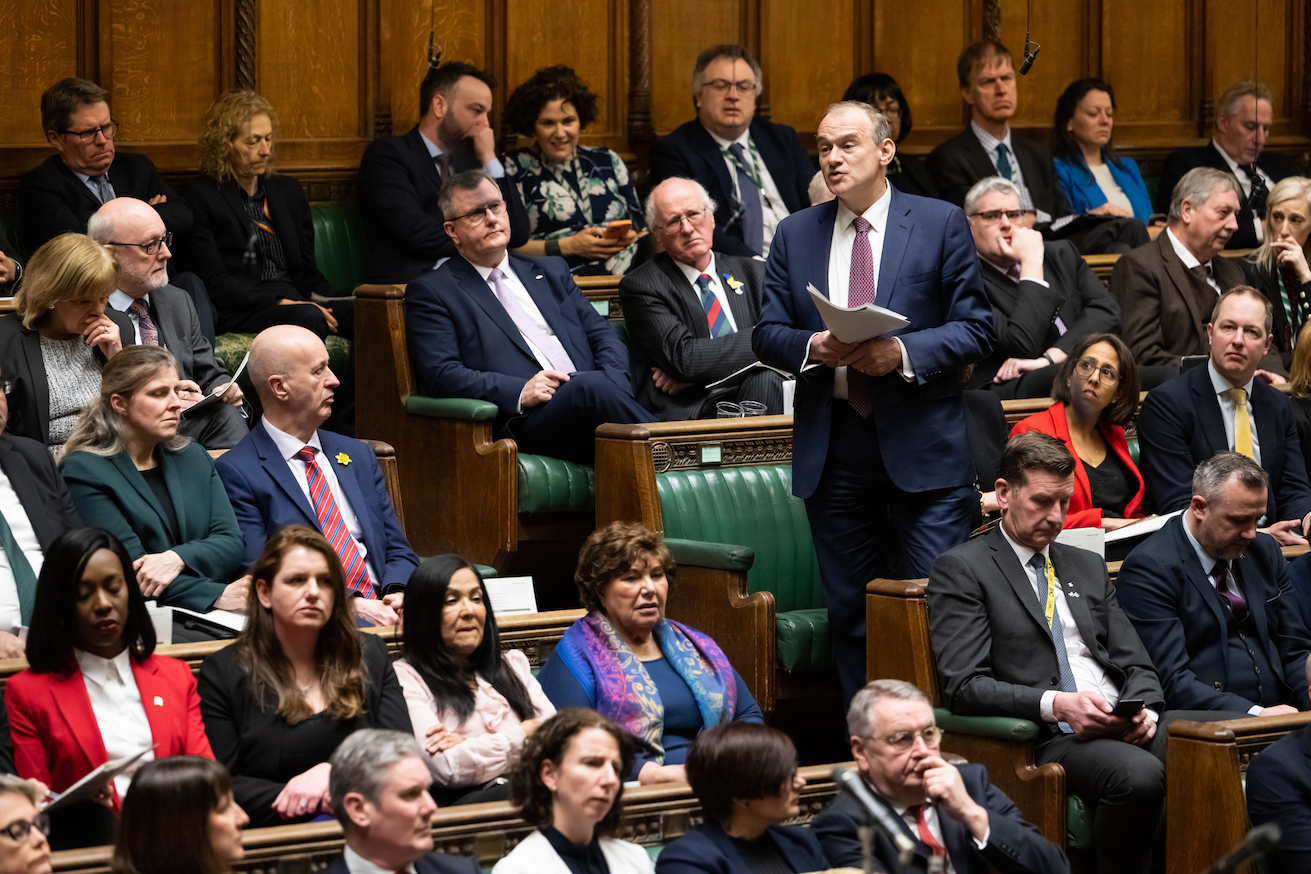“Chaos with Ed Miliband” or “stability and strong government” with David Cameron? This dilemma, posed in a now-totemic tweet from the defending incumbent ahead of the 2015 general election, is the regular subject of mockery on social media.
But at the time of the 2015 election, the message commanded a crucial influence over the voting public, who ultimately rewarded Cameron’s consistent campaigning with a surprise majority government.
Whatever your view of what has happened since, there is no denying that the political logic behind the Tweet was powerful. Sensing that Labour could not hope to win a majority in that election, Cameron’s decision to frame the choice as being between a stable Conservative government and a “coalition of chaos” in which Miliband would be relying on the SNP was well-deployed. Billboards picturing the Labour leader tucked neatly into Alex Salmond’s pocket likewise foretold of a dark future which never came to pass.
But since 2015, the “coalition of chaos” calling card has been played with more mixed success. It formed a central part of Theresa May’s pitch to the electorate in 2017, which of course resulted in a hung parliament and a Conservative-Democratic Unionist Party (DUP) confidence and supply agreement.


When launching the Conservative manifesto in 2019, Boris Johnson warned once more against a Labour-SNP pact. In raising the spectre of two referendums in 2020 — one on Brexit, one on Scottish independence — Johnson’s “get Brexit done” cause felt even more vital for many. “Do you want to wake up on Friday the 13th of December and find a nightmare on Downing Street? A Corbyn-Sturgeon coalition of chaos?”, the then-PM asked pointedly at his manifesto launch.
Perhaps unsurprisingly, following the local elections last week, this familiar “coalition of chaos” routine is being bandied around anew.
It is now clearer than ever that Rishi Sunak has a critical Liberal Democrat problem — and the once-successful message that voting anyone-but-Conservative means a “coalition of chaos” therefore looks set to make a comeback. Indeed, with Sir Ed Davey’s revival in parts of the “blue wall” raising the prospect of a powerful Lib Dem voice in a hung parliament after the next election, Conservative strategists may be tempted to portray Sir Keir as at the whim of a Brexit-betraying minority.
Of course, the Conservative party still harbours designs on a 2015 general election re-run — where a surprise majority is grasped from the jaws of defeat. And perhaps tellingly, this Cameron-era strategy is already being trialled in friendly newspapers:
“A Lib Dem-Labour coalition would spell disaster for Britain’s economy”, reads one opinion piece for the Telegraph. “Lib Dems may demand Brexit referendum re-run as price of coalition”, suggests another Telegraph article. “Labour and Lib Dems hint at ‘dirty’ backroom deal to install Sir Keir Starmer as PM in coalition of chaos”, the Sun holds.
One problem with this strategy is manifest. The unravelling of political stability since 2015, and through 2022 in particular, means arguing a Labour-fronted government would be even more “chaotic” stretches credulity significantly. Even before Truss, Boris greatly blunted the Conservative’s “coalition of chaos” blade.
But there are other problems too — borne primarily of the fact that it is the Liberal Democrats, not the SNP, who are “third party” in the ascendant right now. The prospect of a Lib-Lab pact in a hung parliament scenario is plainly far less emotive than the idea of Ed Miliband literally in the pocket of Scottish secessionists.
Indeed, while the prospect of SNP-Lab “dirty compromises” was a core Conservative calling card in 2015, it’s not so obvious what Sir Ed Davey and Sir Keir Starmer — apart from electoral reform perhaps — actually disagree on passionately. Davey and Starmer are, naturally, far from what you would call “chaotic” leaders.
Then there’s the fact that even in a hung parliament scenario, with Labour as the largest party, Sir Keir might happily head a minority administration without bringing the Liberal Democrats into government. A Labour government only 10-or-so seats short of a majority — which the local elections point to at this stage — could govern relatively comfortably at least for a period. Neither the SNP nor the Liberal Democrats could conceivably allow the Conservatives to remain in office and block a Labour King’s speech.
So in the end, there’s just not enough truth to the “coalition of chaos” jibe anymore to make it an effective strategy for Rishi Sunak’s Conservative party.












